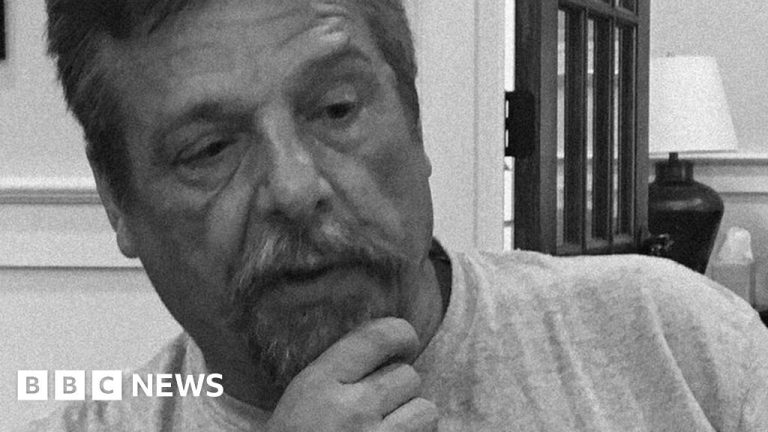Image source, John Barnett
John Barnett was a former director of quality control at Boeing
Lawyers for the Boeing employee-turned-whistleblower who was found dead of an apparent suicide have praised him as a “courageous and honest man of the highest integrity”.
Authorities are currently investigating John Barnett's death from apparent self-inflicted injuries.
Barnett retired after more than 30 years at Boeing in 2017. He was testifying in a lawsuit against the company before his death.
Two of his lawyers called on the police to conduct a full investigation into how he died.
“John was in the midst of testifying in a whistleblower retaliation case, which was finally drawing to a close,” Robert Turkowitz and Brian Knowles said in a statement to the BBC.
“He was in very good spirits and really looking forward to leaving this phase of his life behind him and moving forward. We saw no indication that he was going to end his life. No one could believe it.”
They called on officials in Charleston, South Carolina, to provide more information about what happened, writing: “No details can be left untouched.”
Mr. Turkewitz and Mr. Knowles added that Mr. Barnett was someone who “cared deeply” about his family, friends and Boeing, from its pilots to its customers.
From 2010 until his retirement for health reasons, Barnett worked as a quality manager at the North Charleston plant manufacturing the 787 Dreamliner, a modern aircraft used mainly on long-haul flights.
In that job, he “learned about and exposed very serious safety problems with the Boeing 787 Dreamliner and was retaliated against and subjected to a hostile work environment,” his lawyers said.
After his retirement, he initiated long-term legal action against the company.
He accused her of tarnishing his reputation and hindering his career because of the issues he referred to, accusations that Boeing rejected.
At the time of his death, Mr. Barnett was in Charleston for legal interviews related to the case and gave a formal statement last week in which he was questioned by Boeing's lawyers, before being questioned by his own counsel.
He was scheduled to undergo further questioning on Saturday. When he did not appear, inquiries were made at the hotel where he was staying.
He was later found dead in his truck in the hotel parking lot.
Barnett's brother told US media that confronting his long-time employer caused Mr Barnett to develop post-traumatic stress disorder (PTSD) and deteriorate his health.
“He was suffering from post-traumatic stress disorder and anxiety attacks as a result of his exposure to a hostile work environment at Boeing, which we believe led to his death,” Rodney Barnett said.
Barnett added that his brother “was looking forward to his court appearance and hoped it would force Boeing to change its culture.”
The quality executive was known for raising concerns about the US aircraft giant's production standards, telling the BBC in 2019 that low-stress workers were deliberately fitting substandard parts to aircraft on the production line. He later told the BBC that workers failed to follow procedures meant to trace components at the factory, allowing faulty components to go missing.
He also said he had discovered serious problems with oxygen systems, which could mean one in four breathing masks would not work in an emergency.
He said that shortly after starting work in South Carolina, he became concerned that the pressure to build new planes would mean rushing the assembly process and jeopardizing safety, something the company denied.
Barnett said he reported his concerns to managers, but no action was taken.
Boeing denied his assertions. However, a review by the US regulator, the Federal Aviation Administration (FAA), in 2017, corroborated some of Barnett's concerns.
It has been established that the location of at least 53 “non-conforming” parts in the factory is unknown, and they are considered missing.
Regarding the issue of oxygen cylinders, the company said that in 2017 it “identified some oxygen bottles received from the supplier that were not deployed properly.” But she denied that any of them had actually been installed on planes.
Barnett's death comes at a time when production standards at both Boeing and its major supplier Spirit Aerosystems are under intense scrutiny.
Last week, the FAA said a six-week audit of the company found “multiple instances in which the company allegedly failed to comply with manufacturing quality control requirements.”
- If you are affected by any of the issues raised in this story, you can visit BBC action line.
- From Canada or the United States: If you are in an emergency, please call 911
- You can call the US National Suicide Prevention Lifeline at 1-800-273-8255 or the Crisis Test Line by texting HOME at 741741.

